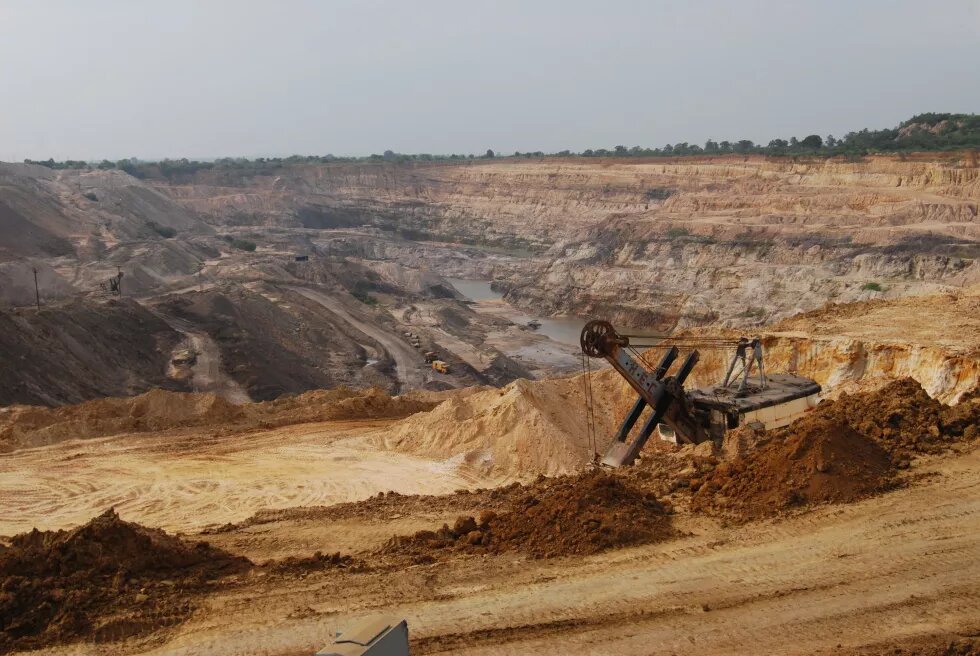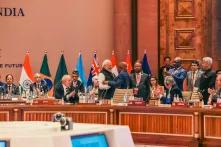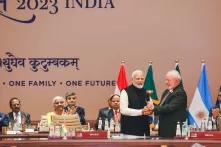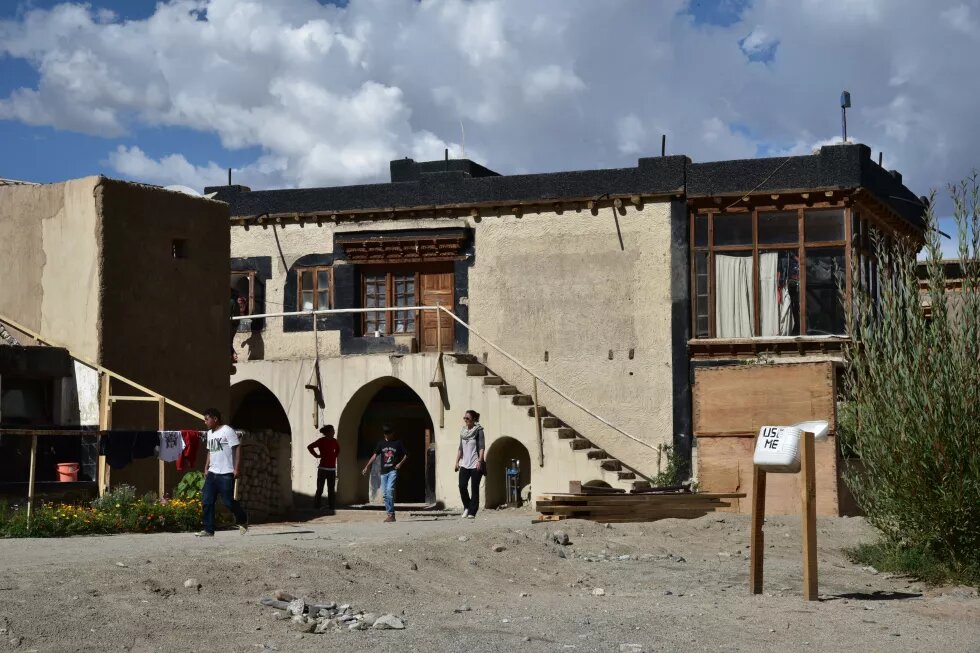
Environmentalist Ashish Kothari on the global group’s impact – or lack of it – on sustainable development.
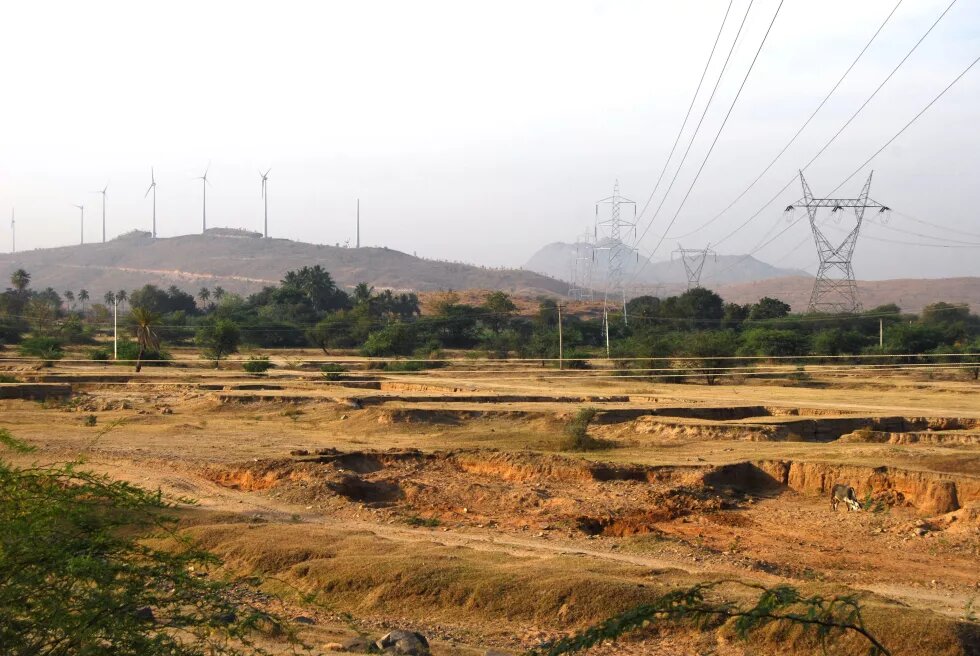
In the run up to G20 Summit in September 2023, our staff member Sadia Sohail spoke to some prominent members of civil society working at the front of ecology, energy, development, climate and gender to get their views on the discussions and deliberations in the C20, G20 meetings, ministerials et al. Energy transition is one of the priority agendas set by the G20 working groups and one where India is leading the way. Today, India is the third largest producer of Renewable energy, has an ambitious National Hydrogen Mission, progressive policy on electric vehicles and incentive mechanisms for manufacture of solar technologies, supporting off shore wind and battery energy storage. While, the country is making large strides in transitioning to renewables for its energy needs, it also grapples with how to make this transition just and inclusive. We conducted the interviews to get varied perspectives on energy transition underway in light of social and ecological concerns, and highlight potential role the civil society can and should be playing within these processes. The interviews are a part of our dossier ‘G20 in India’ on hbs, Regional Office New Delhi website.
The interviews were conducted over email. The views and opinions expressed in the interviews are those of the respondent(s) and do not necessarily represent the views of the Heinrich Böll Stiftung.
SS: What do you deduce from the theme of India’s Group of Twenty (G20) Presidency, “One Earth, One family, One Future”? What, in your view, should this theme entail?
AK: This is a nice slogan at first glance but the devil is in the detail, and in the actual policy/ practical steps that G20 countries including India take to follow it. Firstly, it always sounds good to talk about the planet being one, or humanity being one, and of everyone’s future being interconnected with everyone else’s. But this hides multiple issues that become crucial to integrate into the vision. For instance, it could submerge the pluralism and diversity of the world (or in the words of the Zapatista, “many worlds fitting into one”, a pluriverse); there is a real danger that this gets homogenised by uniform, top-down approaches, which is unfortunately what most governments have taken in colonial or neo-colonial ways. Or, it could get focused on humans and ignore, as has been done for centuries by dominant societies, the rest of nature.
I would have much preferred something like “Many worlds, many peoples, a common future”. And make it explicit that the many worlds include those of the rest of nature. More importantly, though, the specific steps being proposed or taken under the slogan need to be examined from the perspective of whether they are leading to justice, equity, and sustainability.
SS: How do you see the discussions and negotiations on climate and energy unfolding? What is your view on Mission LiFE (Lifestyle for Environment) that the Government of India has been pushing forth?
AK: Again, LiFE sounds nice, and indeed if all of G20 (or even just India) were to pursue policies and actions designed to curb wasteful consumption and do redistribution so that those who don’t have enough could get basic needs, it would be great. Unfortunately I don’t see that happening almost anywhere, certainly not in the high-consumption countries nor in countries like India. On the contrary, our macro-economic policies, and the free-for-all economic environment created for the private sector, encourages more and more luxury and wasteful consumption. For instance, I have not seen any policy or legal move to restrict advertising of products and services that are clearly ecologically destructive. Nor clear taxation or other economic instruments that could strongly regulate the shameful surges in salaries and profits of corporate and political ‘leaders’. I don’t see our political or corporate power trying to make themselves examples of LiFE!
Equally or more importantly, LiFE has the danger of pointing fingers at individual consumption. For instance, NITI Aayog’s “LiFE 21-Day Challenge is launched to enable Indians to take one simple environment-friendly action per day for 21 days and eventually develop an environment-friendly lifestyle.” While this is necessary, there is a danger this hides the bigger issue of production and trade patterns. For instance, we are constantly told to reduce our use of plastics, but its production continues unabated. LiFE would presumably also include the consumption of organic food, but the Government of India has just nearly doubled an already massive subsidy on chemical fertilisers, and pesticides continue to be encouraged. The blatantly destructive behaviour of corporations is not challenged; nor are various dimensions of extreme inequality acknowledged, such that a small section of people over-consume, and an enormous section still does not have enough to consume.
In relation to this, the discussions on climate and energy remain very tunnel-visioned. More on that below, but here, in connection with LiFE, it is important to realise that there is no debate whatsoever on how much energy demand (especially from the rich and in the generation of heavy infrastructure/ manufacturing) is actually justified.
SS: Do you think India’s ambitious energy and climate targets are in consonance with its rapid development trajectory?
AK: I do not think India’s economic growth paradigm and trajectory are ecologically sustainable; this has been clear for many years, including through reports by many institutions (e.g. India's Ecological Footprint report by the Global Footprint Network and Confederation of Indian Industry). I cannot comment on the technical and financial feasibility of the climate targets announced by Prime Minister Narendra Modi in Glasgow; many others have questioned this. From my point of view, however, it is not so much about whether these targets will be met, as it is about what the impacts of trying to meet them are going to be. Much of what is being promoted under them are techno-fixes, as if climate and energy crises are primarily technical in nature. This has been a straitjacketed approach to issues like pollution for many decades, and we have so much evidence that it has not worked. Far more important are behavioural and attitudinal changes, transformations in the basic working of the economy, the democratisation of decision-making, the redistribution of resources including energy and climate space, and so on. There is not much evidence that the Indian government is focusing strongly on these. It is also shocking that India does not yet have an ambitious climate adaptation target or plan, given that millions of people are already facing the impacts of the climate crisis. Some states and cities are moving faster on this than the union government.
SS: India’s energy transition is underway. It holds promises of opportunities and new avenues being created.
- How do you see the transition unfolding?
- Do you think it is sustainable, participatory and inclusive?
- How do you envision this transition to take place?
AK: It is good that countries like India are going for a major renewable energy push, and promoting global partnerships on this. But, notwithstanding some very welcome initiatives on decentralised renewable energy for farmers and households, there are many contentious issues with the approach that India and other countries are predominantly taking:
- India includes large hydropower and nuclear power in its definition of ‘non-fossil-fuel’ and ‘renewable’ energy. Given the enormous impacts and risks of such projects, this is very problematic.
- Much of the focus on other forms of renewable energy is on mega-projects with their own serious ecological and social impacts. Given that renewable energy projects are excluded from the environment impact assessment (EIA) and environmental clearance procedures, their impacts are not even assessed, let alone acknowledged and redressed (if it were even possible to redress them).
- Nor is there a move to actually reduce fossil fuel extraction and use. New coal mining blocks and thermal power plants continue to be given a green signal, including in some of the country’s most biologically diverse and socially sensitive (including indigenous/ Adivasi) areas.
- There is no discussion in official circles on how much energy / electricity demand is justified, from which sections of population, and how its production and use be democratised.
- There is no move to democratise the energy transition, by involving a large range of civil society (especially communities on the ground most impacted by it as ‘beneficiaries’ or as people whose lands/ resources are taken away for it). The transition has become the domain largely of technical ‘experts’ in formal institutions, bureaucrats, the private corporate sector, and politicians.
- There is very little focus on a just transition, in which workers and others who will be impacted (e.g. if and when fossil fuel extraction and production are phased out) are involved, prepared, retrained to take on dignified alternative livelihoods.
- The ‘net-zero’ approach has many flaws, including a dependence on as-yet unproven technologies and/ or massive plantations with their own socio-ecological impacts, and the fact that emissions from power stations, vehicles, etc. are not only carbon but many other poisonous substances, and if allowed to continue with the promise that the carbon dioxide part will be captured or absorbed, the other pollutants will continue to affect people and the environment.
In its latest (2023-24) budget, the government has announced support for electric vehicles, which sounds good, but we are all increasingly aware of the serious ecological consequences of mining of materials going into EVs. In this regard, the recent news that lithium reserves have been found in Kashmir is worrying.
SS: You have expressed discontentment on the inclusion and censoring of views within the C20 processes of G20. Do you consider G20/ C20 a platform that can propel collaboration and spur climate action?
AK: In theory, any civil society forum could (and should) be one where citizens can not only get involved in official processes and decisions, but also hold the government accountable to its responsibilities. However, as far as I know, the C20 has rarely been a forum for deep, wide civil society participation in G20, especially where critical elements of the public, including people’s movements on the ground, are involved in a meaningful manner. In some earlier years, critical civil society has boycotted or protested G20’s approach and events, such as in Saudi Arabia in 2020. In India, the forum has been captured by the religious and economic right-wing in a very dangerous way. I had considered taking part at one point, but when I learnt about its co-optation in this manner, and when I was told that I could not criticise G20/ C20 at an event to which I was invited, I decided to not engage.
SS: What has been the role of civil society in mobilising efforts and climate action in the G20 processes?
AK: As far as I know (and this is limited) there are two kinds of responses in India. Some civil society organisations (CSOs) are involved with the official G20/ C20 processes, participating in or hosting dialogues and conferences, giving inputs to the official process. I do not know the full extent of this. Hopefully they can influence the outcomes to some extent, though I have my doubts if they can do so other than some small reforms.
The second kind of process is civil society mobilising outside of the official forums, exposing the problems with G20 in general and in this period of India’s Presidency in particular. In a statement by trade unions, people’s movements and other civil society groups, it was noted that “G20 has remained as an exclusive club, a forum to save capitalism at the highest political level through the promotion of neoliberal policies”; and how India is using its Presidency “as an opportunity to seek political and electoral gains before the upcoming national elections. The scale at which the G20 meetings are being organised to portray a picture-perfect narrative of shining India, reeks of a vulgar display of wealth at a time when India’s performance on every social barometer is abysmal.” These CSOs have also been gathering evidence and making public the way in which the poor are being displaced in many cities where G20 events are being organised. In mid-August they organized a 3-day civil society event as WE20: People’s Summit, which the Delhi Police under instructions from the Ministry of Home Affairs tried to forcefully stop – a clear indication that the Government of India’s boast of living up to India’s image as the ‘mother of democracy’ rings hollow.
SS: What substantive role can the civil society presume to help accelerate sustainable and just transformation? Will India’s G20 Presidency give primacy to their role and influence as a decisive actor and engage towards prompting change even when the curtains are drawn on it?
AK: Civil society in all parts of the world has several crucial roles, including demonstrating the practical feasibility of sustainable/ just approaches, advocacy on policy shifts, holding the state accountable, being a link between communities on the ground and the state where needed, and so on. It is already doing all these in the arenas of climate and energy. It is resisting what it perceives to be unjust approaches, and showing/ advocating just ones including alternatives in the entire range of human endeavour linked to climate (energy, agriculture, urbanisation, mobility, conservation, etc.). This could be its most important role in relation to G20.
There is however no sign that the G20 Presidency is recognising this role and giving it the space necessary. I do not have a full sense of the range of CSO involvement in the various G20 forums, but I am aware that many of the critical voices in climate/ energy are not involved; and several have also chosen not to be involved as they feel the forums have been hijacked for the continuation of state and corporate control, with token civil society participation. But this is also in keeping with the general decline in independent civil society involvement in official governance institutions in India (as in many other parts of the world where the state is becoming more authoritarian), the very visible reduction in democratic spaces, and the repression on those dissenting from the state. All this is tied to the visible corporatisation of India’s economy, the continuing slide away from socialism to capitalism, and the fixation on economic growth. In such an atmosphere, there is little hope that either during its Presidency, or subsequently, the Indian state will enable the crucial roles that civil society can play.
